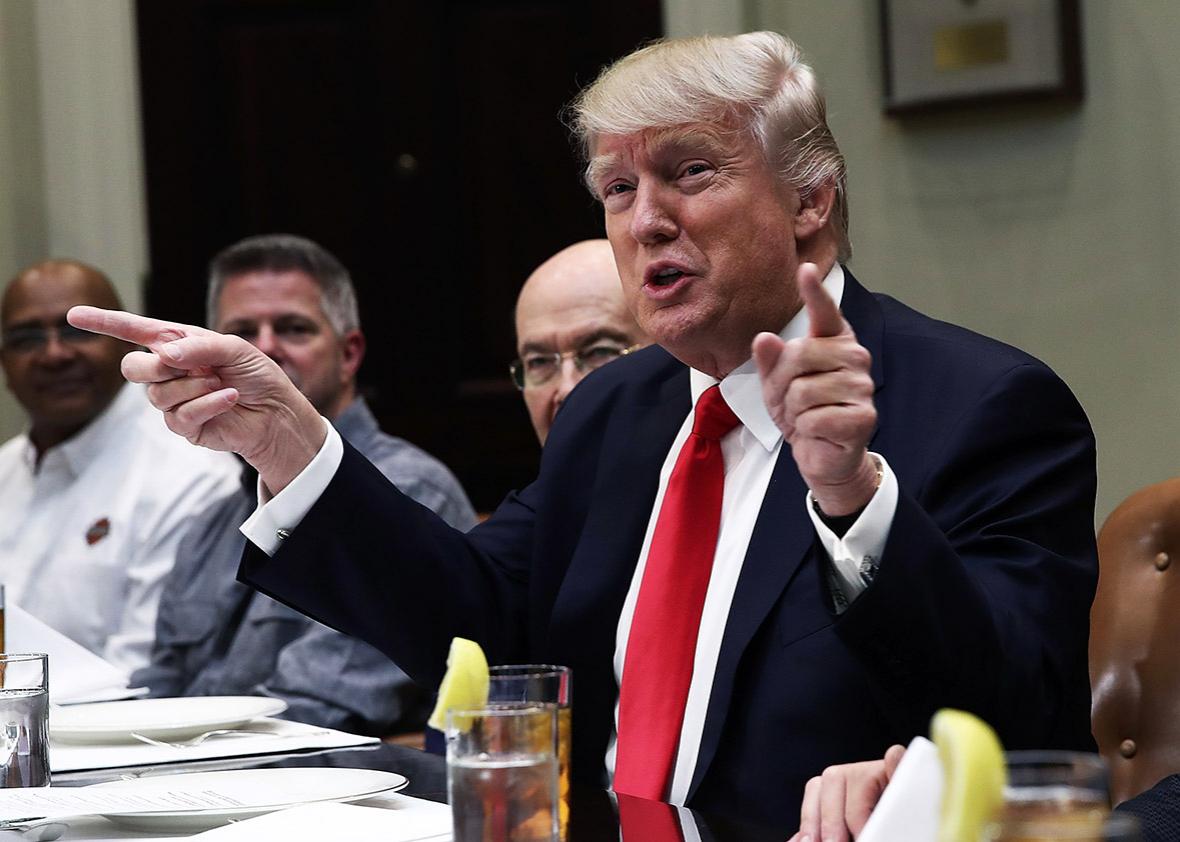The Jan. 28 raid on an al-Qaida outpost in Yemen, which resulted in the deaths of a Navy SEAL fighter and several civilians, was approved by President Trump with no advice or consultation from intelligence officers or military commanders, according to officials familiar with the chain of events.
As the New York Times reported on Wednesday, Secretary of Defense James Mattis and Gen. Joseph Dunford Jr., chairman of the Joint Chiefs of Staff, presented the plan over dinner at the White House, on Jan. 25, to Trump, his son-in-law Jared Kushner, and his political strategist Steve Bannon.
Officials told me that Trump approved the plan then and there. The next day, the National Security Council’s Deputies Committee—an interagency group of deputy and undersecretaries from various Cabinet departments—held a meeting to discuss the plan. But, as one official put it, the meeting was “pro forma and irrelevant,” as the decision had already been made.
The raid—which involved several dozen commandos from the U.S. Navy’s SEAL Team 6 and from the United Arab Emirates’ elite forces—was the first operation in a new policy, proposed by the Pentagon, to step up joint ground attacks against al-Qaida militias in Yemen. Military officials briefed President Obama on the policy proposal, which would give lower-level officers broad latitude to carry out such attacks without going through the sluggish process of seeking authority from higher-ups. Since this would mean a significant escalation of America’s military involvement in Yemen, Obama deferred the issue to his successor, according to a former White House official.
Given its significance, one might also have thought that Trump would vet the issue through the Deputies Committee and possibly the Principals Committee, which bring in the perspectives, interests, and unique expertise of senior civilian, military, and intelligence officials.
Trump is known for making decisions with the small group of his trusted advisers, mainly Kushner and Bannon, sometimes with the addition of his national security adviser, retired Lt. Gen. Michael Flynn. But this latest snap decision is raising eyebrows from many observers.
A Reuters story about the raid quoted “U.S. military officials” as saying that the assault—Trump’s first covert counterterrorism operation—went forth “without sufficient intelligence, ground support, or adequate backup preparations.” As a result, according to “three officials,” the attacking SEAL team “found itself dropping onto a reinforced Al Qaeda base defended by landmines, snipers, and a larger than expected contingent of heavily armed Islamist extremists.”
It’s unfair to blame all this on Trump, as the Reuters sources appear to do. Instead it’s worth asking why Pentagon officials were pushing for the raid, and the broad authority that went with it, if the preparations were so flimsy. Or were they pushing for it? Usually, in these situations, military briefers outline a whole set of risks, contingencies, and caveats involved in a combat operation, if just to spread the blame if things go south. Did they do this with Mattis and Dunford? Did Mattis and Dunford do it with Trump, Bannon, and Kushner?
Either way, it’s likely that questions would have been asked, the scenarios spelled out, the odds of success at least somewhat measured, in an interagency meeting that included senior officials from the State Department and the intelligence agencies as well as input from the NSC’s professional staff. Trump didn’t avail himself of these resources.
True, there are scant resources at the moment. The Senate hadn’t yet confirmed Rex Tillerson as secretary of state by the time Trump had that fateful dinner. No deputy or undersecretaries of state or defense have, even now, so much as been nominated. All the acting deputy and undersecretaries are hangovers from the Obama administration. Trump wouldn’t take their views seriously, in any case.
But what happens after the new national-security team is fully in place? Will its members perform their usual functions, or will Trump continue to make the big decisions huddled with Bannon and Kushner? Mattis will probably learn lessons from the raid’s downside—he is famously a serious student of history and strategy who seeks guidance from chronicles of past successes and failures—but will Trump? Is he capable of learning—of changing his mind or broadening his perspective after exposure to unfamiliar ideas or unexpected events? The answer will shape the course of his presidency. So far, the prospects seem dim.
